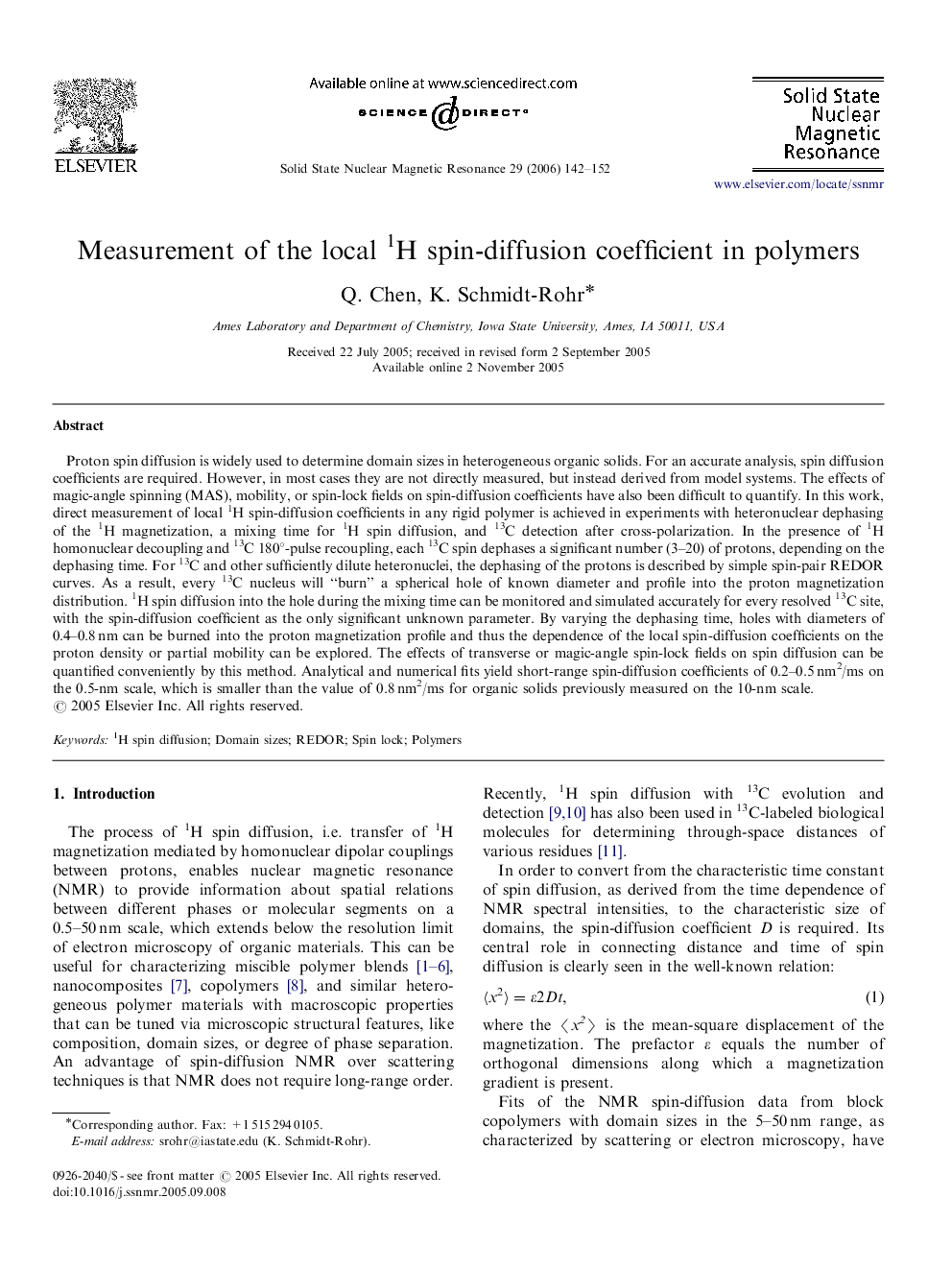| Article ID | Journal | Published Year | Pages | File Type |
|---|---|---|---|---|
| 5420985 | Solid State Nuclear Magnetic Resonance | 2006 | 11 Pages |
Abstract
Proton spin diffusion is widely used to determine domain sizes in heterogeneous organic solids. For an accurate analysis, spin diffusion coefficients are required. However, in most cases they are not directly measured, but instead derived from model systems. The effects of magic-angle spinning (MAS), mobility, or spin-lock fields on spin-diffusion coefficients have also been difficult to quantify. In this work, direct measurement of local 1H spin-diffusion coefficients in any rigid polymer is achieved in experiments with heteronuclear dephasing of the 1H magnetization, a mixing time for 1H spin diffusion, and 13C detection after cross-polarization. In the presence of 1H homonuclear decoupling and 13C 180°-pulse recoupling, each 13C spin dephases a significant number (3-20) of protons, depending on the dephasing time. For 13C and other sufficiently dilute heteronuclei, the dephasing of the protons is described by simple spin-pair REDOR curves. As a result, every 13C nucleus will “burn” a spherical hole of known diameter and profile into the proton magnetization distribution. 1H spin diffusion into the hole during the mixing time can be monitored and simulated accurately for every resolved 13C site, with the spin-diffusion coefficient as the only significant unknown parameter. By varying the dephasing time, holes with diameters of 0.4-0.8 nm can be burned into the proton magnetization profile and thus the dependence of the local spin-diffusion coefficients on the proton density or partial mobility can be explored. The effects of transverse or magic-angle spin-lock fields on spin diffusion can be quantified conveniently by this method. Analytical and numerical fits yield short-range spin-diffusion coefficients of 0.2-0.5 nm2/ms on the 0.5-nm scale, which is smaller than the value of 0.8 nm2/ms for organic solids previously measured on the 10-nm scale.
Related Topics
Physical Sciences and Engineering
Chemistry
Physical and Theoretical Chemistry
Authors
Q. Chen, K. Schmidt-Rohr,
